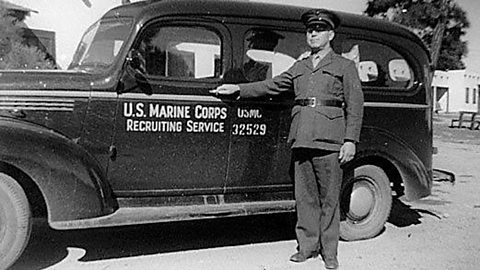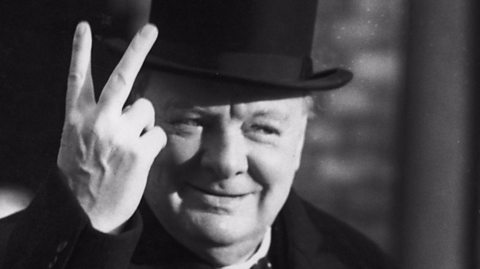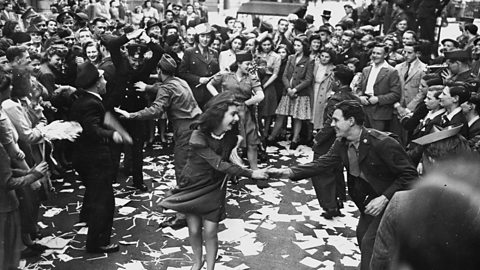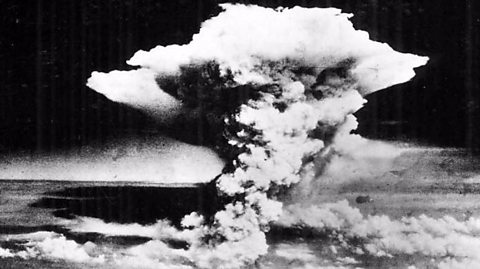The search for an unbreakable code
In 1942, with the world at war, the race was on to find a code that the enemy couldnβt crack. Securely transferring information at high speed meant the difference between victory and defeat.
The US Marines thought they had the answer in a Native American language. They turned to the Navajo tribe for recruits. Their mission was to devise a code rooted in the Navajo language that would be impossible for outsiders to decipher.
CLICKABLE: Words as weapons
Navajo had no words to describe modern warfare. Instead the Code Talkers took inspiration from familiar sights from the Navajo reservation back home. Can you crack the code?
Code Talkers in combat
Follow the story of the Code Talkers from recruitment to operations in the Pacific.

Image caption, 1/7: In spring 1942, recruitment of Navajo speakers by the US Marines began. Carl Gorman was amongst this initial group of 29 who signed up. They were assigned with establishing the code and proving it could work.
1 of 7
Hidden from history
When the war ended, the Code Talkers returned home to their families in southwest America. However they were unable able to reveal anything about their vital contribution to the war. The US Marine Corps insisted that the mission remained top secret for the next 20 years.
In 1968 the mission was finally declassified and the secret was out. But full public recognition of the Code Talkersβ achievements took another 14 years. President Reagan declared 14 August 1982 to be National Navajo Code Talkers Day. Later, in 2000, a bill was introduced to Congress formally remembering the men. By 2001 President George W. Bush presented Gold Congressional Medals to the original 29 Code Talkers. But only five members were still alive to collect their award in person.
National Navajo Code Talkers Day rewarded the men, 37 years after Iwo Jima. Clip from ΒιΆΉΤΌΕΔ News, 14 August 1982.
Learn more about this topic:
WW2: Did Winston's words win the war? document
Winston Churchill is revered as one of history's great orators, but just how crucial a role did his speeches play in winning World War Two?

WW2: How did the British plan to celebrate VE Day? document
VE Day or Victory in Europe Day was on 8 May 1945, following Germany's surrender in WW2. But how did Britain plan for one of the greatest days in its history?

WW2: Was it right to bomb Hiroshima? document
The nuclear bombing of Japan in 1945 is widely credited with hastening the end of the war. Even if true, was it ethical to drop the bomb?
